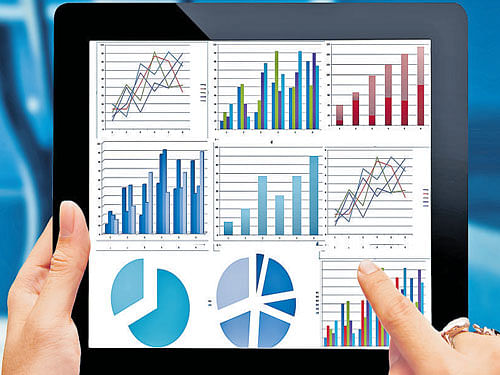
The ‘data revolution’ is one of the defining developments of the 21st century. Eric Schmidt, Chairman of Google, points out that, “there was five exabytes of information created between the dawn of civilisation through 2003, but that much information is now created every 2 days, and the pace is increasing.”
We are awash with data! But to participate in this revolution organisations need people with the skills to manage, analyse, interpret and communicate data, in order to extract insight and value. Disciplines such as Data Analytics and Business Intelligence have existed for many years; however, there is a renewed interest in seizing the data opportunity that has resulted in the emergence of ‘Data Science’ as Provost and Fawcett points out, “At a high level, data science is a set of fundamental principles that support and guide the principled extraction of information and knowledge from data” (2013).
Data science is a growing field that seeks to discover and explore new ways of handling and exploiting data to support decision-making for a wide range of domains and problem areas, such as healthcare, the public sector, local government, retail and manufacturing, business and commerce. Vast amounts of data are being produced in real-time (so-called ‘Big Data’), and there is a greater demand than ever to manage, analyse and use this data effectively.
The notion of ‘Data Science’ has grown in popularity alongside terms such as ‘Big Data’ and ‘Predictive Analytics’, but as a discipline Data Science is much broader. On the one hand large companies such as IBM view the data scientist as “an evolution from the business or data analyst role” by which they mean someone that also possess business acumen, can handle multiple sources of data to look at problems from multiple angles, and has the ability to communicate data.
Leading the data revolution
However, even this view is limited as Data Science as a discipline also captures the broader economic and societal contexts in which data are used. Can such diverse and varied skills be found in a single person? Arguably not! Data Scientists will likely have particular strengths and form part of an interdisciplinary team that can take businesses into and lead them through the data revolution. Educating people in Data Science will help them develop data-analytic thinking whereby analysis, data and systematic reasoning are used to help make decisions beyond mere intuition or ‘gut feeling’.
And there is clear evidence that businesses increasingly want people with data analytic skills. “Making sense of big data is a combination of organisations having the tools, skills and more importantly, the mindset to see data as the new ‘oil’ fueling a company,” says Andreas Weigend, Head of the Social Data Lab at Stanford and former Chief Scientist at Amazon.com.
However, the shortage of trained staff to enable organisations to take advantage of data, especially Big Data, is a widely recognised problem. A recent report by the e-Skills UK and SAS highlight that the demand for Big Data skills is expected to rise 92 per cent from 2012 to 2017. Similarly, a 2011 McKinsey report also predicts “a shortage of 140,000 to 190,000 people in the US with deep analytical skills as well as 1.5 million managers and analysts with the know-how to use the analysis of big data to make effective decisions.”
Educating the data scientists
Various training courses and academic programmes have emerged in recent years to help educate and train Data Scientists. I am coordinator of one such course, a Master’s in Data Science, at the University of Sheffield (UK) in which we aim to provide students from any academic or professional background a grounding in data analysis, communication and research skills, as well as experience with tools common place in the data industry, such as R (data analysis), Oracle (data management) and Tableau (data visualisation).
The combination of practical skills and theory is also blended with contributions from external industrial contacts that provide that much needed insights in applying Data Science in practice. Individuals working in data science hold a variety of business-focused and data-focused roles including Business Analyst, Business Intelligence Analyst, Data Scientist, Data Engineer, Data Manager, Data Analyst, Data Architect and Data Modelling and Data Mining Engineer.
As Cathy O’Neil and Rachel Schutt, the authors of the book ‘Doing Data Science’ point out: “Data Science has the potential to be a deep and profound research discipline impacting all areas of our lives.” Maybe it’s time you started to start think about a new career in Data Science and joined the data revolution!
(the author is a Information Retrievalprofessor, University of Sheffield, UK)